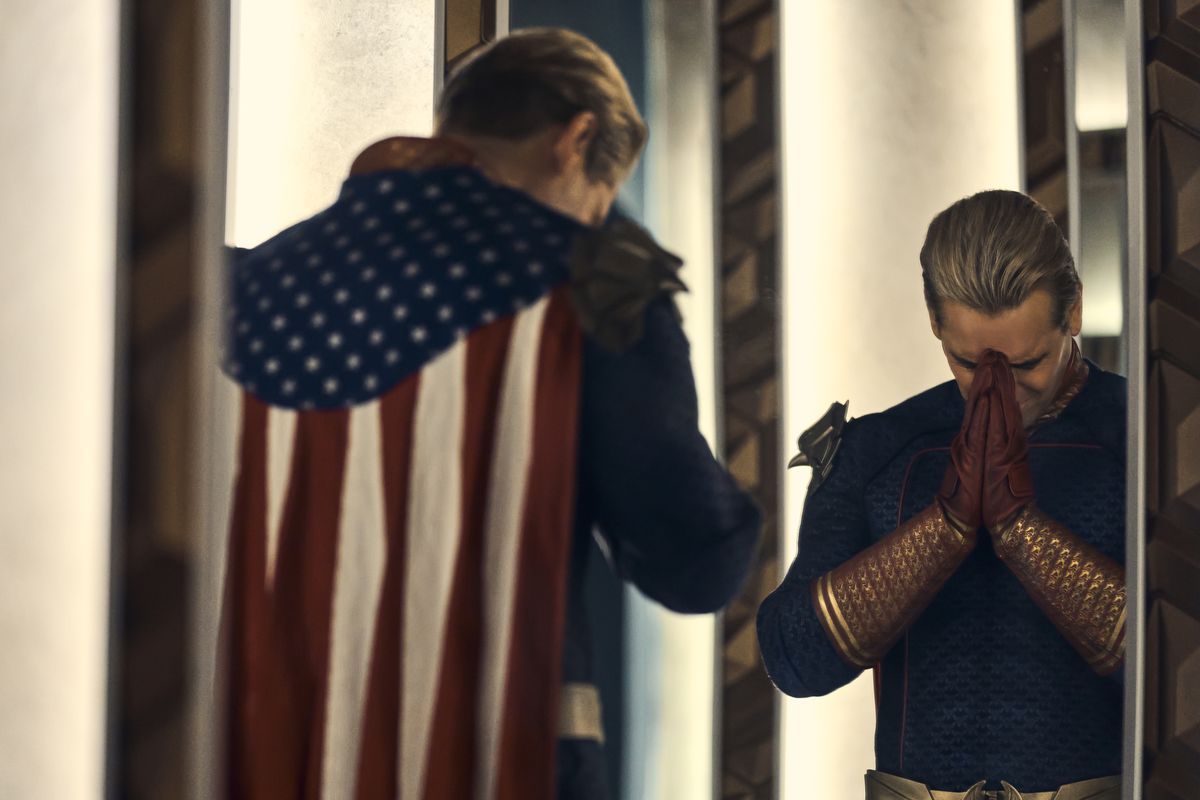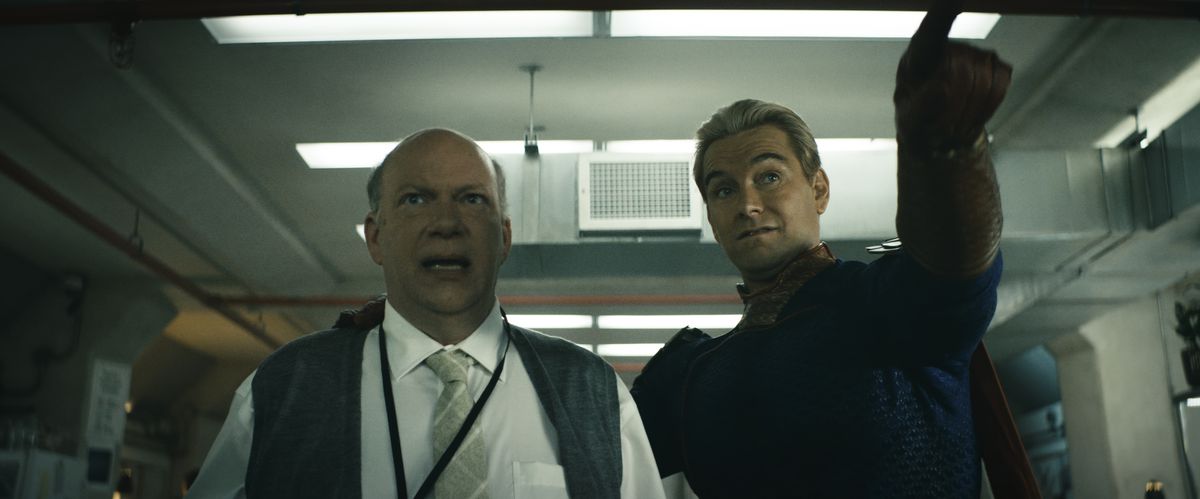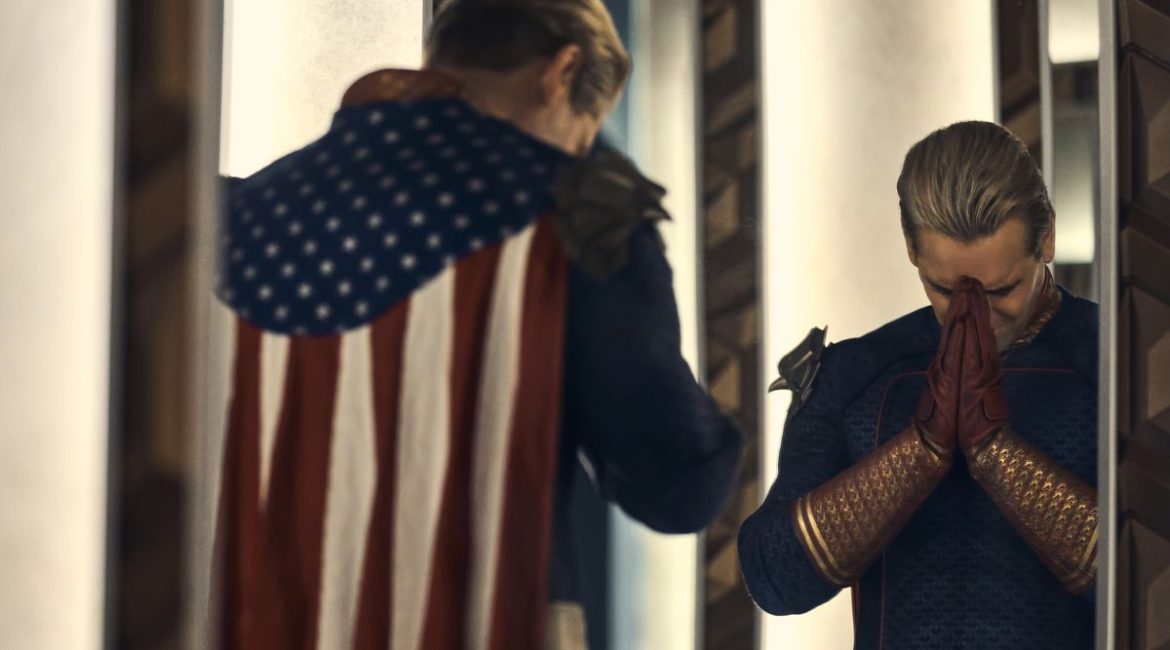One of the hardest things to understand from the outside of any group operating under a cult of personality is just how intoxicating a personality can be. A charismatic presence, given a regular amount of your time — say, every Sunday morn ing, or even better, every evening after dinner — can be terribly seductive. Television, in its focus on building a relationship with the viewer over time, can use this as a powerful tool in making its point. Sometimes, with the right actor breathing life into the material, it can be a little too
It’s worth taking a moment to consider how difficult a task any actor would have had being Homelander. Considering the source material — which I would strongly recommend you do not, as it has not aged terribly well in multiple ways — Homelander doesn’t quite seem like a character that could be played by a living human being. He’s basically a caricature, having more in common with political cartoons than the comparatively grounded aesthetic of comics superheroes contemporary to him. There is no humanity in the character as envisioned by writer Garth Ennis and artist Darick Robertson; he’s a means to an (often prurient) end.
Antony Starr, however, seemed to innately understand the character from the moment he appeared on screen, and how to add dimension to what lay crudely on the comic book page. He knew how to project a smile so radiant you only notice Homelander’s dead eyes behind it if you’re looking for them. He knows how to carry himself with a tension stemming from deep insecurity, or how to purse his lips in a way that underlines how it is more annoying for him to issue a threat than it is to merely repeat himself and let the threat remain implied. If he played a wind instrument, he’d have excellent embouchure.

The Boys doesn’t work without Antony Starr. The New Zealand actor, who had previously starred in the cult-hit action series Banshee, plays a character who could fundamentally end the show’s conflict between the superhumans of The Seven and Billy Butcher’s ragtag resistance of normal humans whenever he wishes, so he must regularly portray a character that believably gets in his own way, or possesses psychological hang-ups that would render an all-powerful man manipulable.
Starr’s performance, in other words, does one of the most dangerous things you can do in a story about such a patently evil man: It makes him empathetic. Understandable. “Wisdom of the Ages,” the most recent episode of The Boys, picks up a running thread in the character’s backstory, about how he was experimented on as a child and broken down mentally so he could be used as a tool by the megacorporation that made him. It’s heartbreaking stuff that has only backfired as this broken man has found that he now holds sway over a public broken in similar ways, who are looking for a charismatic strongman like himself to empower them to act out violently.

The Boys, however, is able to indulge in moments we don’t get to see as often from real-world fascist strongmen, when they are not performing to a crowd of adoring fans. Homelander’s story in “Wisdom of the Ages” involves Homelander taking out his increasing feelings of impotence as head of Vought on the laboratory staff that made him, murdering them all in ways reminiscent of the causal cruelty they displayed toward him when he was just a test subject for them.
In these scenes, Antony Starr threads the needle, conveying the horror of what Homelander suffered when he was a boy named John, and also the more monstrous thing he is now. Starr plays these scenes as a horror movie villain, all cruel appetites and mockery. The ease with which Starr is able to slide into this mode — with which he is able to continually find shades that are pathetic, funny, frustrating, simmering, dangerous — is frankly dazzling. For the viewer that’s able to see the whole picture, Homelander is a villain through and through. But within the fiction of The Boys? That Homelander is just learning the kind of influence he has. And Antony Starr has made me want to see that through to whatever terrible end The Boys has in store.
New episodes of The Boys drop on Thursdays.
